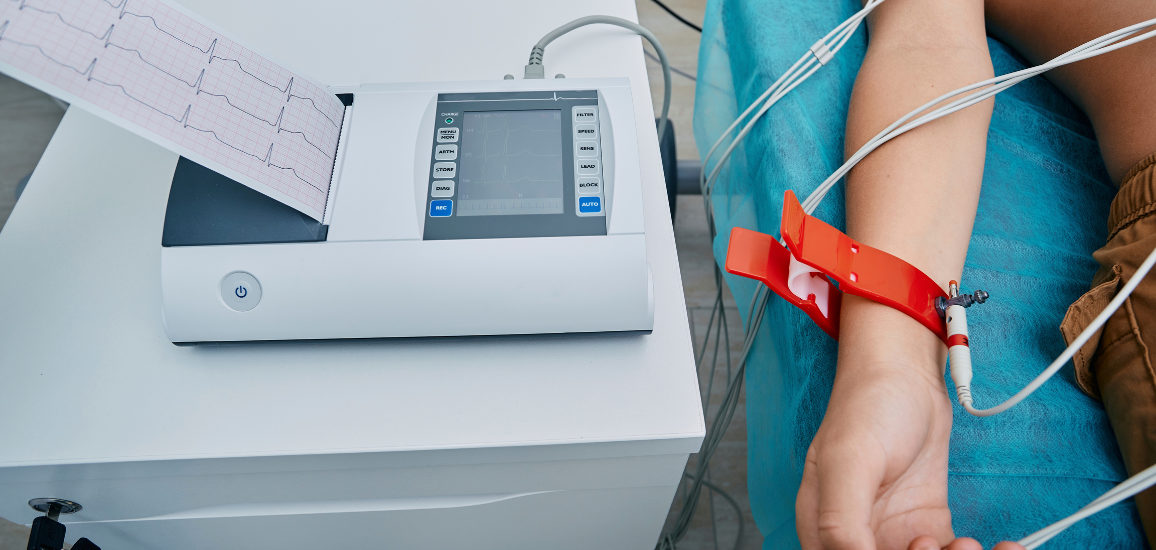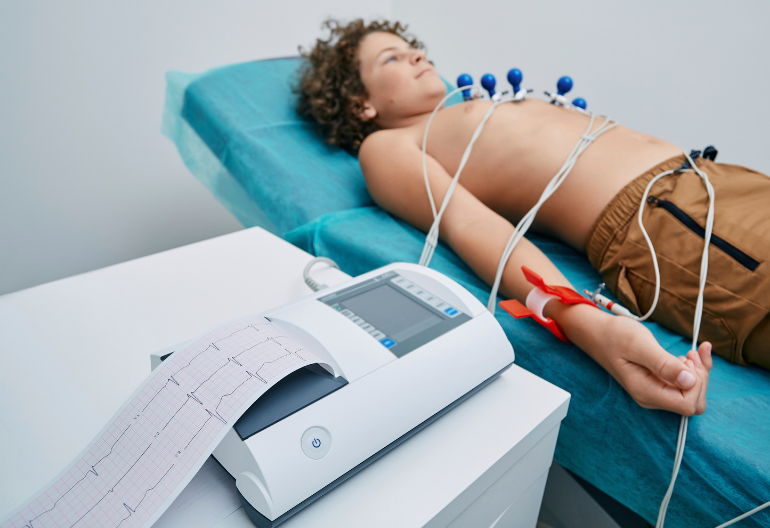
An ECG test, or electrocardiogram, is a non-invasive procedure that assesses the electrical activity of your heart. It provides vital information about your heart’s health, helping diagnose various heart conditions.
What is an ECG Test?
An ECG records the electrical signals in your heart as it beats. Electrodes are placed on your chest, arms, and legs, which detect these signals. The results are displayed as waves on a graph, reflecting the heart’s rhythm and electrical activity.
Importance of ECG Test
The ECG test is crucial for diagnosing heart rhythm abnormalities, detecting heart attacks, evaluating the effectiveness of heart medications, and assessing overall heart health.
Understanding ECG Test Results
Interpreting ECG results is vital in understanding your heart’s condition and identifying any potential issues.
Normal ECG Results
Normal ECG results indicate a regular heartbeat and the absence of abnormalities. It assures a healthy heart rhythm, providing peace of mind and confirming cardiovascular wellness.
Abnormal ECG Results
Abnormal ECG results may indicate various heart conditions, including arrhythmias, coronary artery disease, or heart muscle abnormalities. Prompt medical attention is necessary to address any detected abnormalities.
Preparation for ECG Test
Proper preparation ensures accurate test results and a smooth testing experience.
Before the Test
Before your ECG test, avoid applying lotions or oils to your skin, as they can interfere with electrode placement. Wear comfortable clothing and inform your healthcare provider about any medications you’re taking.
During the Test
During the ECG test, you’ll lie down while electrodes are attached to your chest, arms, and legs. Remain still and relaxed to obtain clear readings. The test is painless and typically takes a few minutes to complete.
After the Test
After the ECG test, you can resume your normal activities immediately. Your doctor will interpret the results and discuss them with you during a follow-up appointment.
Benefits and Risks of ECG Test
Understanding the benefits and risks of an ECG test is essential for informed decision-making.
Benefits of ECG Test
The ECG test offers numerous benefits, including early detection of heart problems, monitoring of existing conditions, and guiding appropriate treatment strategies.
Risks and Limitations
While the ECG test is generally safe, it may not detect all heart abnormalities. False-positive or false-negative results are possible, necessitating additional tests for accurate diagnosis.
Role of Premier Choice Cardiology
Premier Choice Cardiology, led by expert cardiologist Dr. Tanveer Ahmad, MD, FACC, provides comprehensive cardiac care and diagnostic services.
Expert Cardiologist Dr. Tanveer Ahmad, MD, FACC
Dr. Tanveer Ahmad, MD, FACC, is a board-certified cardiologist with extensive experience in diagnosing and treating various heart conditions. His expertise ensures accurate diagnosis and personalized treatment plans for each patient.
Premier Choice Cardiology Services
Premier Choice Cardiology offers state-of-the-art cardiac diagnostics, including ECG tests, echocardiograms, stress tests, and cardiac consultations. Our dedicated team provides compassionate care and strives for excellence in cardiovascular health.
FAQs about ECG Test
Q: What is the ideal frequency for undergoing an ECG test?
A: It’s recommended to undergo an ECG test as part of routine cardiac screenings or if you experience symptoms such as chest pain, palpitations, or shortness of breath.
Q: Can an ECG test detect all heart abnormalities?
A: While an ECG test is effective in detecting many heart conditions, some abnormalities may require additional tests for accurate diagnosis.
Q: Is the ECG test safe?
A: Yes, the ECG test is non-invasive and generally safe. It involves attaching electrodes to your skin to record your heart’s electrical activity.
Q: How long does an ECG test take?
A: An ECG test typically takes about 5 to 10 minutes to complete. It’s a quick and painless procedure that can provide valuable insights into your heart’s health.
Q: Can I eat or drink before an ECG test?
A: Yes, you can eat and drink normally before an ECG test. However, avoid consuming excessive caffeine or large meals immediately before the test.
Q: Is an ECG test covered by insurance?
A: Many insurance plans cover the cost of an ECG test, especially when medically necessary for diagnosing or monitoring heart conditions. Check with your insurance provider for specific coverage details.
Conclusion
Understanding the ECG test is essential for maintaining heart health and early detection of potential issues. Premier Choice Cardiology, led by Dr. Tanveer Ahmad, MD, FACC, offers comprehensive cardiac care, including advanced diagnostic services like the ECG test. Prioritize your heart health and schedule a consultation today.

